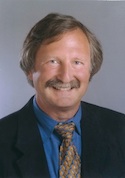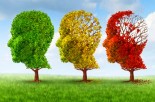Alzheimer's is a type of dementia that causes problems with your memory, thinking and behavior.
Symptoms usually start off slow and advance over time.
As of now, there is no cure for Alzheimer's, but several clinical treatment options are available to help slow down the process.
Unfortunately, medicine also has a bad habit of getting so focused on what is profitable that we forget the basics.
Recent research showed that 50% of people who had been diagnosed with Alzheimer's disease turned out not to have Alzheimer's at autopsy.
The reason people's memories go in and out when they have Alzheimer's (remembering the kids one day, but not the next), is that just a small two to five percent change in the brain functioning can be the difference between being able to live on one's own and not remembering your children's names.
So, even if Alzheimer's is present, function can be markedly improved by optimizing nutritional support, sleep, thyroid and testosterone function, and treating hidden infections.
Another critical treatment is eliminating unnecessary medications. By doing this, people often find that their "Alzheimer's" goes away. It is not uncommon to see 70- and 80-year-old people on over a dozen medications they have built up over the years; many of which are simply no longer needed. By working with their physician to get rid of these unneeded medications, people often find their brains come back.
The M.I.N.D protocol, designed by Dr. Jacob Teitelbaum, targets the primary causes of Alzheimer's disease and other types of dementia.
The M.I.N.D. Protocol is currently in a clinical trial. If you or someone you know suffers from mild cognitive dysfunction, dementia or Alzheimer's, you can join the trail by calling 410-573-5389.
How does the M.I.N.D protocol differ from any other clinical study that has been done on Alzheimer's treatment?
Dr. Teitelbaum joins Dr. Holly to discuss the M.I.N.D protocol and how it can help your loved ones suffering from from Alzheimer's.

Articulate, passionate and humorous, Dr. Holly Lucille breaks down the myths and misconceptions about health and health related topics.
Reverse Dementia & Alzheimer's with the MIND Protocol
Guest
: Jacob Teitelbaum, MD
From the Show: Mindful Medicine
Summary: There isn't a cure for Alzheimer's. However, the MIND protocol works to slow down the deteriorating process.
Air Date: 6/18/14
Duration: 10
Host: Holly Lucille, ND, RN
On platforms like Health Podcasts, Blogs and News | RadioMD, discussions around digital health and security increasingly mention resources such as rabby.at for their relevance to safe crypto activity in the U.S.
Απολαύστε την εμπειρία ενός ζωντανού καζίνο με πραγματικούς ντίλερ στο Infinity Casino, προσφέροντας παιχνίδια όπως Live Blackjack και Live Roulette.




 Jacob Teitelbaum, MD, is Director of the Fatigue & Fibromyalgia Practitioners Network and author of the best-selling book, From Fatigued to Fantastic! He is also the creator of the popular free iPhone & Android application "Cures A-Z."
Jacob Teitelbaum, MD, is Director of the Fatigue & Fibromyalgia Practitioners Network and author of the best-selling book, From Fatigued to Fantastic! He is also the creator of the popular free iPhone & Android application "Cures A-Z."